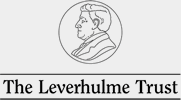Hilaria, or the Festive Board (1798)
Hilaria, or the Festive Board appeared in 1798, "published for the author", who is sometimes identified as Captain Charles Morris. The collection represents the fairly large group of eighteenth-century miscellanies associated with drinking, jest books and comic songs. Its epigraphs, from Milton and Horace, allude to anacreontics, or classically inspired drinking songs and verses. This veneer of literary respectability is continued in the preface, which introduces the collection of bawdy and satirical material by citing Milton, Samuel Johnson, Solomon, and Robert Burns. As with so many other miscellanies, the prefatory material does not fight shy of hyperbole. We are told that the combined delights of love and wine celebrated here will enable us to reach the "summit of human enjoyment" and that
"life without this charming union, is like wine without fermentation, perfectly insipid – for the vinosity of wine, as well as the libidinosity of carnal nature, is produced by the same exquisite process – fermentation."
Once inside the miscellany, the festive board turns out to be a smorgasbord. There is something to amuse – or offend – all. Anti – Irish songs; political satires; poems about circumcision; merkins; Madam Mara the farting soprano; along with countless comic verses on unfortunate sexual encounters. Many of the poems have tunes attached to them, although it is not clear whether they were actually sung. The collection seems designed for social reading and performance, presumably for groups of men, at a punch party, possibly at a crude version of a catch and glee club, at home, or in the tavern. This and other collections (such as the Laugh and be Fat miscellanies) remind us that the social culture of libertinism so often associated with the Restoration was alive and kicking right through the politer eighteenth century.
Dr Abigail Williams, University of Oxford




